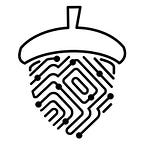Could AI replace our teachers?
One of the common fears that we have about AI is the possibility of job automation — What if we are all slowly replaced by artificial intelligence? The Office for National Statistics states that as of 2017, 7.4% of all jobs in the UK are at risk of becoming automated — But what about teachers?
In the UK, we witnessed chaos unfold after Ofqual tried to use an algorithm to regulate the predicted A-Level grades of year 13 students. There was public outcry as students from lower socioeconomic backgrounds had their grades lowered, sometimes substantially, from their teacher-given predicted grades, and students in private schools had their grades raised. If it wasn’t for the government U-Turn, there could have possibly been an entire year’s worth of students who had their grades determined not by their academic performance, but by where they attended school and the size of their classes — This surely is an example of why AI couldn’t possibly replace our teachers — or is it? I think, instead, this is an example of why we need to be more cautious creating AI, and why we need to carefully assess the ethics behind our creations. The algorithm itself was not the one creating the bias towards privately educated students, the people who created the algorithm were.
The Ofqual algorithm is a perfect example of what happens when bias is implemented into automated systems, and why diversity is important when creating an automated system — Otherwise, subconscious bias may creep in and have adverse effects. This is particularly relevant in the field of teaching, where every student is a unique individual with different needs.
However, there is some good to come from automated teaching. Researches at Stanford University are developing an AI-Based teaching assistant, which could provide detailed automated reports to teachers on how their students are learning, both individually and collectively, so that the teachers can then target their teaching and offer support where it’s needed. With over 260 million children worldwide not in education, the team hopes that the idea will help to bridge the shortage of teachers and educational resources, and aims to design their system for students from different backgrounds and geographies — Something the A-Level algorithm did not include. By actively implementing inclusive design, the use of algorithms goes from disastrous to beneficial.
But the question still stands — Can we completely replace teachers for AI substitutes? From a content perspective, we already have — Online resources and MOOCs are growing rapidly, the E-Learning industry has seen a 900% increase since 200, and you can easily find the answer to any question you have on Google. However, the role of teachers often extends beyond teaching. Studies show that teacher effect on noncognitive behaviours, such as absences and detentions, have more effect in the long-term than teacher effect of grades. Whether we notice it or not, teachers do truly impact our lives not just in terms of education but also emotionally, and I do not believe that is something that AI can replace. We do not yet have a generalised AI, which is an AI that can learn how to do any task a human can — We still only have narrow AI, that are generally specialised to perform one task, which cannot replicate the many tasks teachers perform day to day.
However, that is not to say that there is no room for automation within teaching. AI could be used to mark papers, fill in registers, or find gaps in knowledge amongst students so that the teacher can go over specific topics. A great example of an AI to aid teachers was made in the YouthVsCOVID hack, where one team aimed to create an AI that used facial recognition to identify if students were focused or not. All these systems would help teachers continue to teach and possibly relieve some of the pressure they face day to day.
To summarise, I do not believe teachers can be replaced by AI at this stage, but I do believe there is a space for AI in education. We can develop learning aids to help students who are self-taught, and tools for teachers that use machine learning to automate some their responsibilities. However, we need to be careful not to include subconscious bias, and increase diversity within the technology industry, so we can provide better education for all, not just those who already have access to it.
Reference list:
Jackson, C.K. (2018). What Do Test Scores Miss? The Importance of Teacher Effects on Non–Test Score Outcomes. Journal of Political Economy, 126(5), pp.2072–2107.
Ons.gov.uk. (2019). Which occupations are at highest risk of being automated? — Office for National Statistics. [online] Available at: https://www.ons.gov.uk/employmentandlabourmarket/peopleinwork/employmentandemployeetypes/articles/whichoccupationsareathighestriskofbeingautomated/2019-03-25 [Accessed 19 Sep. 2020].
papersowl.com. (2019). Online Learning Statistics & Infographics 2019–2020. [online] Available at: https://papersowl.com/blog/future-of-online-learning [Accessed 19 Sep. 2020].
